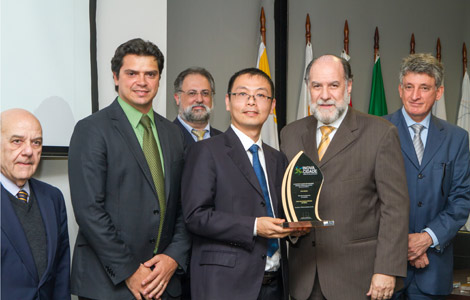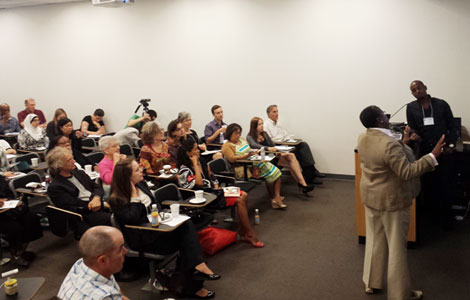Valuable lessons from Silicon Valley
Updated: 2014-09-16 15:42
By Peng Yining(China Daily USA)
|
|||||||||
The 10-day trip to California's Silicon Valley was a mind-blowing experience for Liu Xianran, the 22-year-old founder of an Internet company in Beijing.
"Everyone was asking me about my business idea and talking about theirs," Liu said.
"They were so confident and passionate. Everyone believes that having their own business is the coolest way to live and the best way to realize the value of life."
In May, as part of an exchange program of Tsinghua University, Liu visited companies and business incubators in Silicon Valley, home to many of the world's largest technology corporations and the high-tech hub of the US.
Liu said that back in China, the entrepreneurial life is notoriously filled with risks, stress and sacrifices.
"Many of my schoolmates just wasted their four years in college playing video games and sleeping because they didn't know and never thought about what they really wanted," he said. "And I hated that."
During the US trip, Liu met a lot of talented young people who were full of great ideas and eager to contribute to the world.
"All they talked about was having their own business and living a meaningful life. Their words were still echoing in my mind after I came back," he said. "It was almost like a brainwash, but in a good way."
In his first year in college, Wang Xiangyu was able to make more than 60,000 yuan a month by selling shoes online. But Wang, 22, said he wanted to do something bigger, a business that could make changes to the world.
Before Wang started his second year in college, he made a trip to the Massachusetts Institute of Technology in the US and was impressed by the creativity of its students and how much technology had changed society.
After the trip, Wang took a gap year and started to work on a new business plan on selling food online. His plan won Jiangsu province's entrepreneurship competition and he got a chance to pitch his idea to investors in Silicon Valley.
"The environment of entrepreneurship in the Valley was fascinating," he said.
"Everyone I met in the Valley, from teenage tech geniuses to college professors, believes their idea could affect the world. They work very hard and enjoy the failures and hardships as well as the accomplishments. But back in China, we usually struggle to survive."
Lu Wei, co-founder of Magic Entrepreneur College, a business training agency for owners of startups, said the culture of Silicon Valley has global impact and inspired numerous Chinese entrepreneurs.
"Silicon Valley has too many role models and legends. China has been learning from them for a long time," he said. "But now we have the world's largest group of netizens and smartphone users, and the Internet industry is rapidly growing in China. We will one day have our own culture and legends."
Zhang Yichi, professor at the Guanghua School of Management of Peking University, said he supports young people to create their own jobs, as entrepreneurship does not only benefit business owners, but also helps to build the culture of risk taking and creativity.
"There is a huge cultural gap between China and the US. Generally, US society encourages people to try, to be creative, and is more tolerant of failure. Chinese culture respects tradition and encourages obedience, which might not be a good environment for innovation," Zhang said.
Zhang said he is usually amazed by the creativity of his students, who display more entrepreneurial characteristics than any other generation.
"I teach them but I also learn from them. They can be proud and self-centered but also brave, passionate and independent," he said.
"I am very optimistic of the future of these young Chinese entrepreneurs. Their businesses might fail, but they might be able to change Chinese culture, or at least bring some fresh air to tradition."
(China Daily USA 09/16/2014 page6)
Most Viewed
Editor's Picks

|

|

|

|

|

|
Today's Top News
Sinopec privatization biggest in Xi's tenure
Beijing to tighten foreign hiring requirements
More CFAs buoy hopes for finance
Hillary Clinton takes a big step toward 2016
US teachers visit China on fellowship
Silk Road, climate change on agenda
Boosting innovation in Latin America
China, LatAm see rosy trade prospect
US Weekly

|

|
















